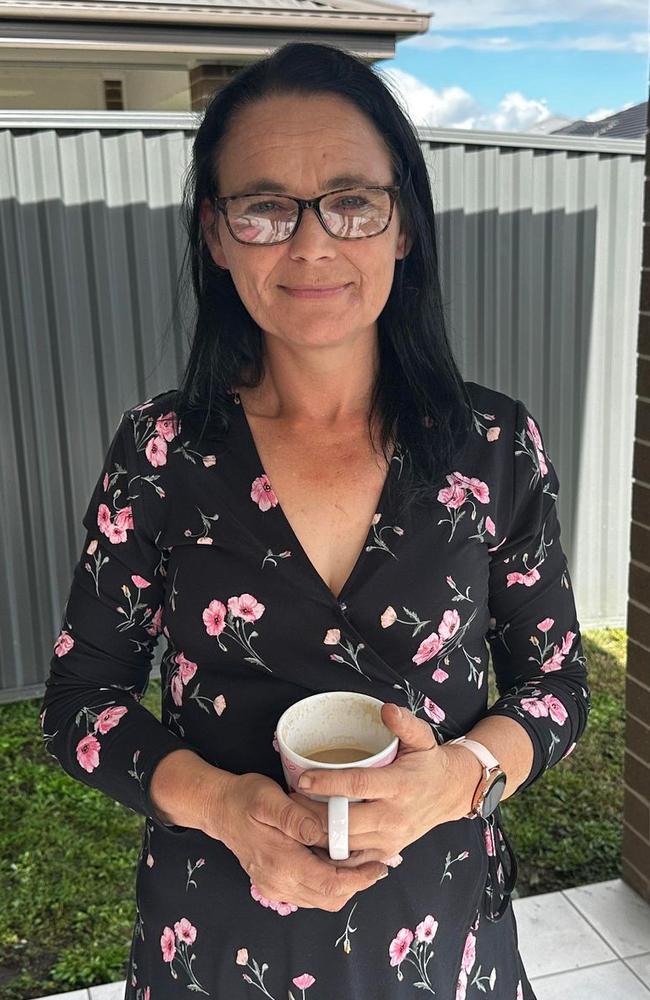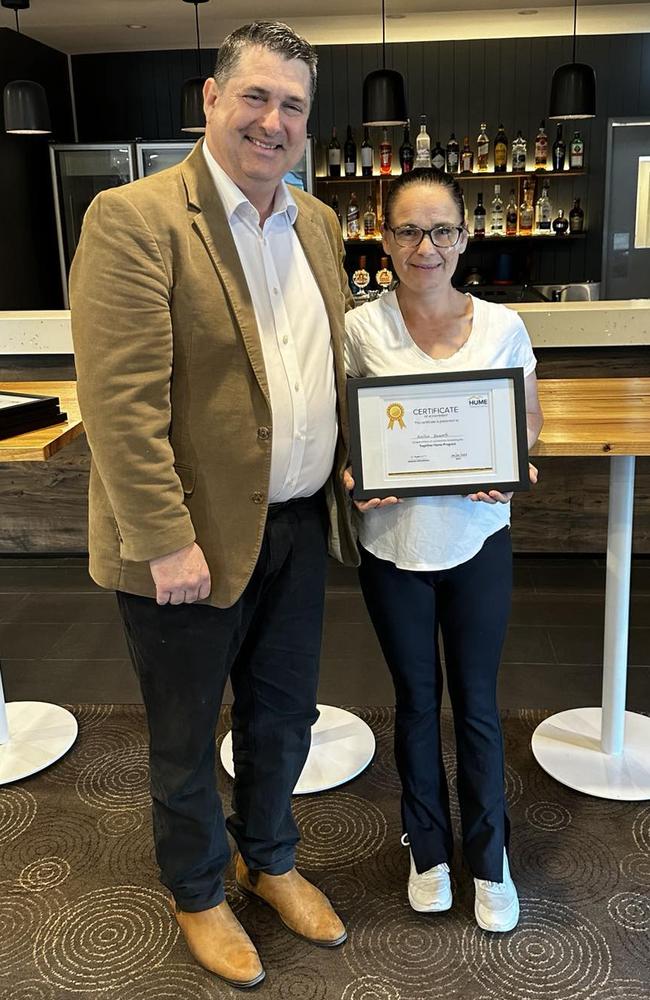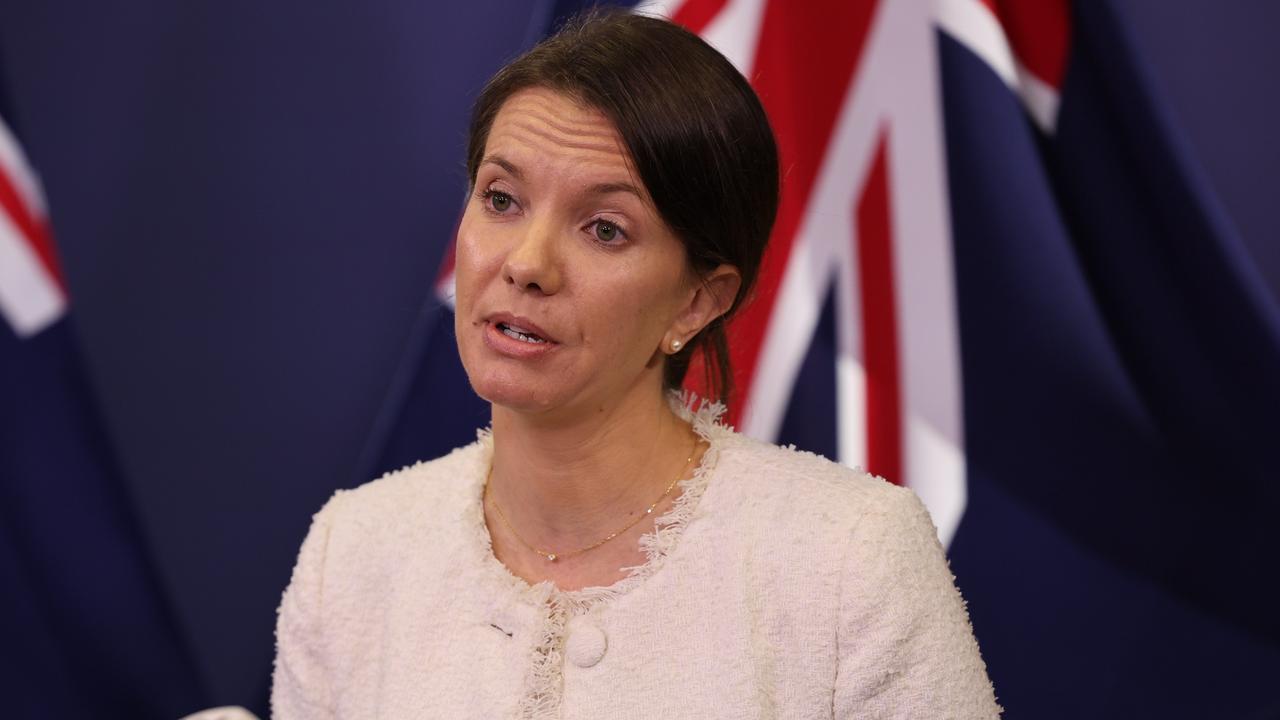Domestic violence survivor calls for commitment to fund Together Home program
A domestic violence survivor was plunged into six years of homelessness after escaping her abusive ex, now she shares her story.
A domestic violence victim who was plunged into six years of homelessness after escaping her abusive ex-husband has issued a plea for the government to guarantee and boost a program that helped her secure a home.
In 2014, Maitland mum Heather Bosworth, 44, was evicted from her home after she fell behind on her rental payments.
In 2012, her ex was sentenced to nine months in jail for domestic violence offences against her, including stalking, intimidation and breaching an AVO
But once he was released, he moved into a home on her street, adding to her stress.
The mum-of-10 said the anxiety compounded in the weeks before she lost her home.
Ms Bosworth said at the time she believed being homeless was the only way for her to “escape” her circumstances.
“I didn’t bother paying my rent, got evicted and ended up being homeless,” she said.
“That was the only way I could escape, by going from town to town.”

Ms Bosworth said the signs of abuse didn’t start till after she married in 2011.
“He was really obsessive and controlling. He tried to take control of my money and then it was verbal and emotional abuse,” she said.
“He took all my money. If I didn’t buy him alcohol, I’d get bashed in.
“It got so bad that I felt scared to walk out.”
After her eviction, she spent the next six years homeless, bouncing around between stints of couch surfing with friends, street sleeping and other temporary and emergency accommodation arrangements.
“I stayed wherever I felt safe, in parks, trains, train stations, even at 24-hour McDonald’s. I’d sit there all night just so I felt safe,” she said.
In 2020, she heard about the Together Home program. The government initiative allows people experiencing homelessness to rent private rentals that are leased by the government and subleased to community housing providers.
Importantly, participants can also access wraparound services such as mental health and legal support, as well as case workers.
Since its start in July 2020 up to January 2023, the program has housed 1092 clients. About 75 per cent of people in the program have maintained their rentals.

For Ms Bosworth, the program helped her rebuild her life, describing her home as a “palace”.
She’s since held down a job in retail, kept her home and divorced her husband.
“Financially, I couldn’t get divorced, and I didn’t have the support to have anyone to serve him with the papers because of the past between me and the perpetrator, and the paperwork to get into the courts was just a nightmare,” she said.
However, the future of Together Home remains unclear, with the government yet to confirm whether it will be given extra funding to meet demand.
The $11.3m from last year’s budget will allow support packages to be delivered for some clients until 2026.
Homelessness NSW, however, has called for an injection of $62m over the next three years to ensure about 400 more people experiencing homelessness can access the program.
“NSW cannot afford to again curtail funding for a program at the coalface of the housing and homelessness crisis when one in two people (accessing homelessness services) are being turned away from help,” Homelessness chief executive Dom Rowe said.
Domestic violence victims represent many of the people accessing homelessness services, with the Australian Institute of Health and Welfare (AIHW) reporting that about 38 per cent of the 104,000 people who accessed specialist homelessness services in 2022-23 had experienced family and domestic violence.
“Domestic violence is one of the main drivers of homelessness. We cannot solve homelessness without ensuring women and children have a safe place to go,” Ms Rowe said.
“It is unacceptable that women are forced to choose between staying with an abusive partner or sleeping rough. Housing First initiatives like Together Home are essential to ensure women and children have somewhere safe to go.
Ms Bosworth knows first hand how life-changing the program can be.

“I’ve achieved all my goals plus more … like getting my mental health back on track, getting all my health check-ups up to date and getting myself back to the way I wanted to be,” she said.
“I don’t think I would have been able to do it without the support of the Together Home program, both financially and mentally.
“I want the government to fund the program again because there are a lot of people in my situation and they wouldn’t be able to get into safe and long-term housing without it.”
Domestic Violence NSW chief executive Elise Phillips said ensuring domestic violence victim-survivors had access to housing when they were escaping perpetrators was “vital”.
However, in NSW wait times for social housing can stretch between five to 10 years, with access more difficult of people in regional and remote areas.
“Quite simply, victim-survivors escaping violence must have somewhere safe to go,” she said.
“Yet the shortages of crisis refuges, transitional accommodation and social housing has meant women are forced to choose between homelessness and staying in the violence.”
Ms Phillips said she’d heard reports of victim-survivors living in their cars or tents to remain mobile and safe from their perpetrators.
“This in itself poses a number of safety concerns and limits the victim-survivors’ ability to engage with support services,” she said.
Aboriginal and Torres Strait Islander women are even more at risk, with figures from the AIHW stating they are nearly 11 times more likely to die from assault than other women and are 32 times more likely to be hospitalised due to family violence.

The Minns government has flagged imminent announcements and funding for housing measures for domestic violence victim-survivors, acknowledging the need to ensure victim-survivors have access to safe housing.
While NSW Homelessness Minister Rose Jackson couldn’t guarantee the Together Home program’s continuation, she acknowledged that “demand for emergency accommodation and long-term housing is not keeping up with supply”.
“We know the Together Home program has assisted many vulnerable people in these situations. The former government left this program on a funding cliff with no continual investment,” she said.
Ms Jackson said she couldn’t “pre-empt the budget” but pointed to other support packages that supported women and children leaving violence like Staying Home, Leaving Violence, which recently had a $48m funding investment through the government’s $230m emergency package to support victim-survivors of domestic violence.
“Fundamentally, we desperately need more long-term social housing for women and children leaving violence,” she said.
“We have established Homes NSW and are conducting the government land audit to expedite this work. We are delivering the $600m Social Housing Accelerator and negotiating hard with the Commonwealth to lift funding through the National Housing and Homelessness Agreement as well as undertaking our own NSW government budget process to ensure we have the resources we need to confront this challenge.
“We can’t pre-empt the budget – but we will have more to say as we continue to explore all options to strengthen support for housing.”



